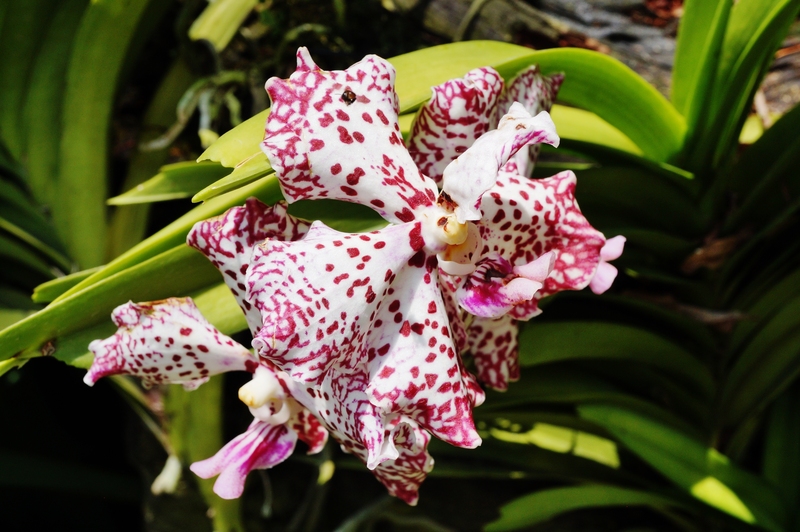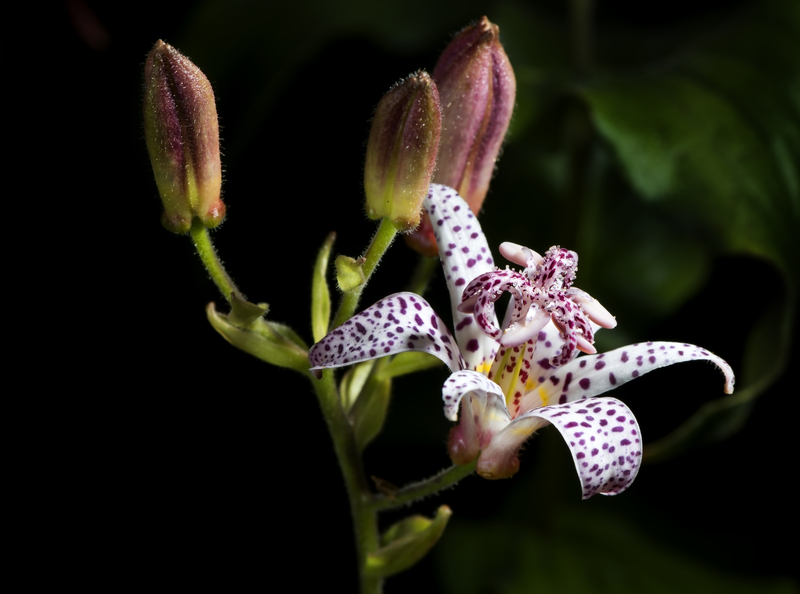Organic Waste to Garden Gold: The Alchemy of Composting
Posted on 01/06/2025
Organic Waste to Garden Gold: The Alchemy of Composting
Transforming everyday organic waste into rich, nourishing compost is nothing less than alchemy in the gardening world. This magical process not only turns kitchen scraps and yard clippings into a valuable resource but also plays a significant role in sustainable agriculture and environmental wellness. In this comprehensive guide, we'll delve deep into the amazing journey of organic waste recycling through composting--revealing how you can turn what many consider "trash" into garden gold.
Understanding the Essence of Composting
Composting is the natural process of breaking down organic materials into a nutrient-rich amendment for the soil. By harnessing the power of microbes, fungi, worms, and insects, composting mimics the age-old cycles of nature, transforming organic waste into "black gold" for your plants.
Why Compost?
- Reduces landfill waste: An average person generates hundreds of pounds of organic waste annually. Composting diverts this from landfills, reducing methane emissions and leachate production.
- Improves soil health: Compost contains vital nutrients, enhances soil structure, water retention, and fuels healthy plant growth.
- Decreases need for chemical fertilizers: By nourishing your garden naturally, compost minimizes reliance on synthetic additives.
- Supports local ecosystems: Healthy, organic-rich soil fosters beneficial insects and microorganisms, contributing to biodiversity.
- Cost-effective waste management: Save on mulch and fertilizer expenses while reducing municipal garbage fees.

The Science Behind Composting: Nature's Alchemical Formula
Composting is often described as "controlled decomposition". Microorganisms such as bacteria and fungi are the real workers in the pile, breaking down complex organic molecules into simpler nutrients. To guide them, understanding the chemistry and biology of decomposition can make a world of difference.
The Key Ingredients: Greens, Browns, Air, and Water
- Greens: These are nitrogen-rich materials like fresh grass clippings, vegetable peels, coffee grounds and food scraps.
- Browns: Carbon is provided by dried leaves, straw, cardboard, sawdust, and paper products.
- Air: Oxygen is crucial for aerobic microbes that break down material efficiently and odor-free.
- Water: Moisture helps activate microbes, but balance is key; overly soggy piles become anaerobic and smelly.
In short, the magic ratio is about 2-3 parts "browns" to 1 part "greens." Maintaining this nitrogen-to-carbon balance ensures a hot, efficient composting process--speeding up the transformation of organic waste to compost gold.
Types of Composting Methods: Choosing Your Alchemical Lab
There are several ways to convert organic waste into valuable compost, each suited to different spaces and lifestyles.
1. Backyard Composting
This classic approach uses bins or piles in the backyard. Backyard composting is perfect for homeowners with gardens, as it can handle a variety of yard waste and kitchen scraps.
- Best for: Lawn clippings, leaves, vegetable waste, eggshells
- Pro tip: Use dual bins--one "active" pile for adding weekly scraps and a "resting" pile for materials breaking down.
2. Vermicomposting
Harnessing the power of red wiggler worms, vermicomposting is a tidy and efficient way to process organic waste, even indoors or in small spaces like apartments or balconies.
- Best for: Fruit and veggie peels, coffee grounds, shredded newspaper
- Produces: "Worm castings"--an exceptionally potent compost for potted plants and garden beds.
3. Bokashi Composting
Bokashi is a Japanese method that "pickles" kitchen waste using beneficial microbes. This anaerobic process is fast and allows the inclusion of meat and dairy scraps, usually barred from traditional compost bins.
- Best for: Cooked food, bones, dairy, and even small amounts of meat
- Requires: A sealed bin and bokashi inoculant mix (usually wheat bran infused with special microbes)
4. Trench or Pit Composting
Simply dig a hole, add organic refuse, and cover with soil. Perfect for garden beds, this method lets nature do the work with minimal effort!
- Best for: Garden areas needing periodic soil improvement
- Pro tip: Cycle pits throughout the garden each year for even nutrient dispersal
What Can (and Cannot) Be Composted?
Compostable Organic Waste
- Vegetable and fruit peels
- Coffee grounds and filters
- Tea bags (unbleached, no staples)
- Eggshells
- Shredded paper and cardboard
- Yard trimmings (leaves, grass, small branches)
- Flowers and houseplants
- Sawdust and wood chips (untreated)
Items to Avoid
- Meat, fish, or dairy (except in Bokashi systems)
- Fats and oils
- Large branches and wood chunks
- Diseased plants or weeds with seeds
- Pet waste (dogs, cats)
- Glossy or colored paper
- Non-organic materials (plastic, glass, metal)
Note: Moderation is key! Even "good" compost ingredients can cause problems if added in excess.
Step-by-Step: How to Start Composting at Home
1. Choose Your System
Pick a method that fits your space and lifestyle: bin, pile, worm farm, or bokashi bucket. Each has its unique benefits for organic waste conversion.
2. Set Up Your Compost Area
- Backyard bins: Place in a shady, well-drained area.
- Worm bins: Keep indoors or under a covered porch.
- Bokashi: Store under your kitchen sink or in a pantry.
3. Begin Layering Materials
Alternate "green" and "brown" material layers for a balanced pile. Start with a base of coarse dry matter (twigs or straw) to encourage airflow.
4. Maintain Your Compost
- Turn your pile weekly to aerate and speed up decomposition.
- Moisten dry compost with a watering can; cover if rain is excessive.
- Monitor temperature and smell--a healthy pile is warm and earthy, never sour!
5. Harvest the Black Gold
In 2-6 months (depending on conditions), your compost should be dark, crumbly, and smell sweet. Sift through a screen if needed, and return unfinished bits to the pile.
Tips for Speeding Up Composting
- Shred or chop bulky materials to increase surface area for microbes.
- Maintain a pile at least 3' x 3' x 3'; smaller piles decompose slowly.
- Turn more often for quicker compost; aeration feeds bacteria.
- Add finished compost or garden soil to introduce beneficial microbes (an "activator").
- Monitor moisture: Not too soggy, not too dry--the texture of a wrung-out sponge is ideal.
Common Composting Problems and Solutions
- Foul odor: Too wet or too many greens. Add more browns, aerate the pile.
- Pile not heating up: Lacks nitrogen or is too small. Add greens, turn the pile, enlarge compost heap.
- Pests: Exposed food scraps attract critters. Bury new additions under browns, use a covered bin.
- Too dry: Slowly add water and more greens, mix well.
The Benefits of Using Compost in Your Garden
Improved Soil Structure
Compost boosts soil's ability to hold moisture and nutrients, improves aeration, and supports strong root systems--turning even poor dirt into a fertile cradle for plant growth.
Natural Fertility Boost
The diverse nutrients and beneficial microorganisms in compost break down slowly, feeding your plants throughout the growing season without the risk of chemical burn.
Enhanced Disease and Pest Resistance
Rich, balanced soil helps plants resist common garden diseases and pests, reducing the need for chemical interventions.
Environmental Stewardship
By diverting organic waste from landfills, composting reduces greenhouse gas emissions and helps close the loop in local resource cycles. Every compost pile is an act of climate action!
Composting "Hacks" for Urban Gardeners
Even those with apartments or small patios can turn organic waste into garden gold! Here are some creative solutions for those with limited space:
- Countertop Composters: Electric composters rapidly process kitchen scraps with minimal space and odor.
- Balcony Bins: Compact tumbling bins are perfect for patios.
- Bokashi Buckets: As mentioned, ideal for small spaces and rapid processing of meat, dairy, and cooked food.
- Community Programs: Many cities now offer curbside compost pickup or communal drop-off locations.
Composting Myths Debunked
- "Compost attracts rats!" If done properly (no meat scraps or exposed food), compost bins are no more attractive to pests than your garden itself.
- "You need expensive bins or tools." A simple pile in the corner of your yard, or a repurposed plastic tub, can do the trick.
- "It takes years to get compost." With the right balance and regular turning, compost can be ready in a few months.
- "You can compost everything organic." Not all organic materials are safe; some, like diseased plants or pet waste, should be avoided.
Sustainable Living: Composting Beyond the Garden
Once you master the alchemy of composting, you'll start seeing organic waste differently--not as garbage, but as a valuable resource. Composting is an easy step toward sustainable living that benefits not just your home and garden, but also your community and the planet.
- Advocate for composting programs at your workplace or school.
- Share finished compost with neighbors or local gardens.
- Teach children the magic of turning "waste" into garden riches!
Conclusion: From Waste to Wealth--Embrace the Garden Alchemy
Transforming organic waste into compost is more than just a gardening technique--it's a profound way to reconnect with nature's cycles, nurture your soil, reduce your household's environmental footprint, and create a thriving, resilient garden.
So don't throw away your apple cores, coffee grounds, and autumn leaves--turn them into the magical garden gold that fuels vibrant, healthy plants year after year. Composting truly is the alchemy that turns everyday waste into everlasting richness.

FREQUENTLY ASKED QUESTIONS
Can I compost citrus peels and onion skins?
Yes! In moderation, these break down just fine. Chop them small and distribute throughout the pile to avoid strong odors.
How long does composting take?
With the right mix and regular turning, backyard compost is usually ready in 2-6 months.
Is composting smelly?
No--well-managed compost smells earthy, not foul. Bad smells indicate too much moisture or lack of oxygen. Add browns and turn the pile if this happens.
What should I do with finished compost?
Top-dress garden beds, mix into potting soil, lightly mulch perennials, or brew "compost tea" for liquid fertilizer.
Ready to Start Composting?
The path from organic waste to garden gold is open to everyone. With a bit of knowledge and routine care, you'll soon discover why gardeners call compost "black gold." Embrace the magic of composting and become part of a greener, more sustainable world!
Latest Posts
Revitalize Your Neglected Green Space Now
Conquer Invasive Weeds with 3 Practical Tips
How to Design Inviting Seating Spots in Your Garden

